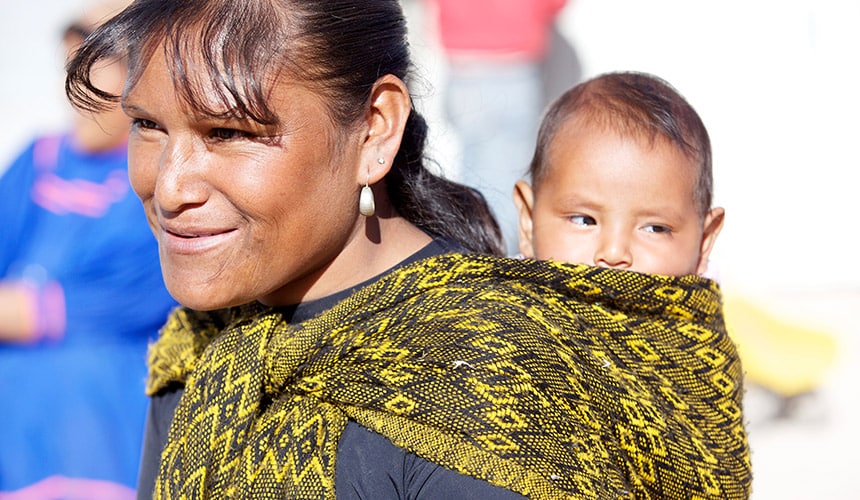The Problem
The family planning field has renewed its focus on enhanced monitoring of quality, but tools for measuring client perspectives on quality of care are limited. For example, a reliable and valid tool to measure women’s perceptions of their interactions with providers when choosing a contraceptive method does not yet exist. With the increasing prevalence of performance-based incentive programs for family planning providers and availability of long-acting, reversible contraceptive methods, advocates are calling for measures that assess the extent to which comprehensive information on contraceptive options is provided. They also want information about the extent to which coercion and bias may affect women’s ability to make voluntary, informed contraceptive choices. Standard quality measurement tools for contraception services are insufficient for monitoring best practices in provider-client interactions—such as unbiased information sharing, individualized counseling, and client participation in method selection.
The Solution
The W&HI is developing a scale to measure the quality of provider-client interactions, from the client’s perspective, at the time a contraceptive method is selected. The scale has the potential to help ensure that family planning clients receive comprehensive, unbiased, and technically accurate information on contraceptive methods; are treated respectfully; and are given the opportunity to be active, consenting participants in decisions. The scale responds to longstanding calls for better monitoring of potential coercion by providers in contraceptive decision-making and current global interest in improving quality metrics for contraceptive services. It has the potential to make a significant contribution to efforts to improve (1) quality measurement in family planning service delivery, and (2) research on the relationship between the quality of contraceptive counseling and client outcomes, such as client satisfaction with contraceptive methods and unintended pregnancy rates.

The Strategy
- Develop the scale. The W&HI conducted an extensive, multi-disciplinary literature review and key informant interviews to inform a conceptual framework to guide the scale development. This framework is being used to draft scale items.
- Use client input to refine the scale. Once the scale items have been developed, their validity will be assessed through focus group discussions with women receiving family planning services in Mexico. These women will be recruited from Mexfam, an International Planned Parenthood Federation affiliate. The data collected from these interviews will verify that the questions are relevant to the construct being measured, clarify areas of ambiguity in the scale, and identify any important topics not covered in this initial version.
The focus of this research is calling attention to the potential for coercion and poor counseling. It is important to develop a robust tool that goes beyond just one question on an exit interview that says ‘were you treated well?’
—Project staff member
Achievements
Key informant interviews have confirmed that the conceptual framework W&HI developed reflects the current state of the field. In particular, these interviews reinforced the need for a measure to assess the role of provider-client interactions in women’s ability to make voluntary, informed contraceptive choices. As a result, the W&HI is confident that its work will fill a critical gap in the field.
The W&HI has cultivated a strong working relationship with Mexfam. Although W&HI’s partnership with Mexfam was not in place prior to project implementation, the relationship has proved to be productive and valuable. Mexfam has expressed interest in collaborating on the next phase of the scale development and implementation process, and has also introduced the W&HI to key government officials in Mexico, who have expressed interest in and support for subsequent work on the scale.

Challenges
Measures of provider-client interactions can be subject to social desirability bias. Client reports of experiences with health services often reflect social desirability bias, meaning clients give positive responses because they perceive these to be what researchers want to hear. Because a scale is a more nuanced, robust measure of client experiences with contraceptive counseling than stand-alone questions about general constructs such as client satisfaction, the new measurement tool is expected to be less subject to this source of bias.
Developing a scale that is both culturally specific and usable across a broad range of contexts can be challenging. The W&HI wants to develop a universal tool so that women’s health and family planning can be monitored across the globe where there is high risk for biased or coercive interaction between providers and women seeking family planning care. Increasing universality, however, reduces socio-cultural specificity. The W&HI is developing the tool to be both culturally relevant and broadly usable.
Key Learnings
- Scale development can benefit from incorporating literature and conceptual frameworks from different fields. The W&HI decided to broaden its literature review beyond quality of care and human rights, and to include foundational concepts and emergent innovations in patient-centered care, shared decision-making, disrespect and abuse in maternity care, and informed consent. To the W&HI’s knowledge, the scale being developed under the project is the first quality measure that draws on research and practice from all these fields, bringing a valuable multidisciplinary perspective to the measure.
- The process of scale development has led to important questions about what quality means in different contexts. The W&HI is grappling with the difficulty of defining and measuring universal quality standards in contexts where client expectations about quality of care are often low. It is important to incorporate context-specific understandings of how women should be treated during contraceptive counseling, while also ensuring that a core set of fundamental standards are met.
- Development of a reliable, valid scale requires significant investment in early phases of research. Developing a multi-disciplinary conceptual framework and using it to inform scale items are crucial to ensuring the scale is grounded in existing research and practice. To ensure reliability and validity of scales such as the one developed in this project, research programs and funders must continue to prioritize investment in rigorous methods for measure development prior to implementation in the field.
Next Steps
After focus groups are completed, the project team will revise the scale’s item pool to reflect the findings from these discussions. They will then test the scale to ensure reliability and validity in Mexico and other contexts.
Implementing Partners
Women and Health Initiative (W&HI) Harvard T.H. Chan School of Public Health
Location
Mexico
Categories
Family Planning
Year Awarded
2013
Project Timeline
July 2014 – December 2015
About the Grantee
The Women and Health Initiative (W&HI) at the Harvard T.H. Chan School of Public Health was founded to address the health needs of women and their roles in health care systems. The initiative aims to support women’s efforts to fulfill their potential as providers, decision makers, and leaders in health systems and, consequently, commit and prepare them to advance the women’s health agenda.